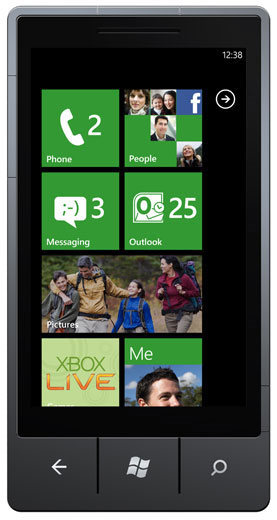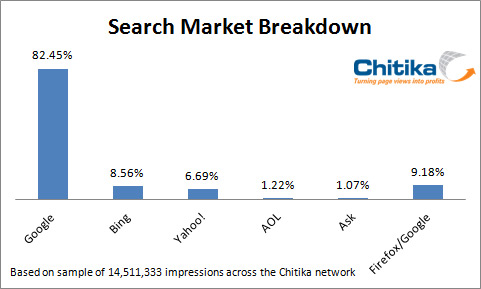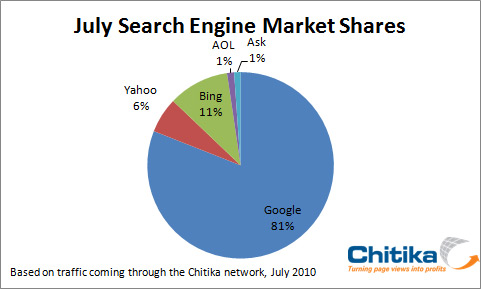Like most studies, surveys, and stat counts related to Internet user behavior, search market stats should generally be taken with a grain of salt. While they can give us a general idea of which search engines users flock to, there are too many variables to paint a completely accurate picture.
What’s your search engine of choice? Why? Let us know.
comScore has added an "explicit core search" metric to its search market reporting. The firm defines this as user engagement with a search service with the intent to retrieve search results. In other words – a user searching for something from the search box.
While some may have assumed that was always the case, reports haven’t always reflected actual searches by users only. As Search Engine Land’s Danny Sullivan points out, "Companies such as Yahoo and Microsoft have inflated traditional metrics through the use of ‘slideshows’ and other ‘contextual search’ activities."
"Since March, Yahoo in particular has been gaining notable share by generating searches that many probably wouldn’t consider an actual search," he writes. "For example, someone might be viewing a photo slideshow. Clicking to advance the slide causes a page reload in a way that is counted as a ‘search’ under comScore’s traditional metrics." Sullivan has written several articles related to this, which he lists here.
One interesting piece of information that Sullivan gleaned from an interview with comScore is that they do not take into account map searches across any of the search engines in their core search numbers. This is a significant part of search marketing, particularly for local businesses, and is something to think about. News searches are counted.
comScore’s July numbers for explicit core search (according to JP Morgan, who obtained an early copy) indicate that Google’s share dropped slightly in July from 66.2% to 65.8%. Yahoo’s share increased 17.1% in July from 16.7% in June, and Microsoft’s share stayed flat at 11%. Again, that’s Google down, Yahoo up, and Microsoft flat. That means good things for Bing.
Reasons Why Things Are Looking Up for Bing

Windows Phone 7 is on its way to the smartphone market. While it remains to be seen if it can really be a contender, particularly with Google’s Android taking off, it will put Bing front and center for its users. In fact, the company will be making games a big part of the Windows Phone 7 experience, with direct connections to Xbox, which could provide a nice boost in usage. In case you haven’t heard, Xbox is pretty popular. More Windows Phone 7 users mean potentially more Bing users.
There’s also a little site called Facebook. It’s got over half a billion users (and counting), and a search function. While that search function may leave a bit to be desired, the web search results are coming from Bing. People are spending more time on Facebook, which puts that search box pretty close by during a significant part of their online experience. Facebook is moving up the charts as an online video destination as well, which means even more time spent. That doesn’t even take into account the fact that Facebook is practically connecting the entire web to itself.
A recent report from Chitika indicated that Firefox-based Google searches accounted for searches than total Bing or Yahoo searches. Google’s contract with Mozilla is due to expire next year. Expect Microsoft to make a bid to become Firefox’s default search option. That could be a significant booster.

Chitika also released a report this week indicating that Bing had surpassed Yahoo in search market share, based on the search traffic going into the Chitika ad network. While that’s not reflective of as big a picture as comScore’s numbers, it’s still an up arrow for Bing.

Let’s not forget the big Yahoo-Microsoft Search Alliance, which will effectively mash Yahoo’s and Bing’s shares together, complete with adCenter ads. This is set to go down any day now (late August).
Then there’s Microsoft’s massive marketing budget for Bing. You’ll continue to see Bing commercials on television, increasingly implanting that Bing brand into the minds of the masses, while Google does little to advertise its bread and butter. I’m not saying Google is in danger of losing out to Bing anytime soon, but it stands to reason that more people will continue to search with Bing one way or another.
With all of this in mind, webmasters and business owners should check out Bing’s newly refreshed webmaster tools. As more use Bing, the need for a search presence (organic and/or paid) there becomes more vital.
Update: Microsoft just announced that the Yahoo organic search transition has started. From the announcement:
In the upcoming days we will begin the organic (algorithmic) transition, which means that soon Bing will begin to power the English language organic search results on Yahoo! Search in the U.S. and Canada. Once this organic transition is complete, Bing will power 5.2 billion monthly searches… that’s 31.6% of the search market share in the U.S. (290 million monthly searches and 8.6% share in Canada).
Should Google be worried? Tell us what you think.